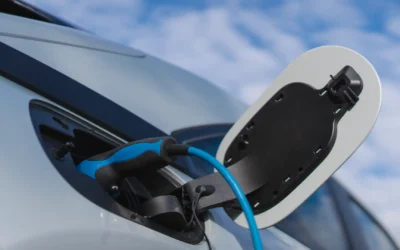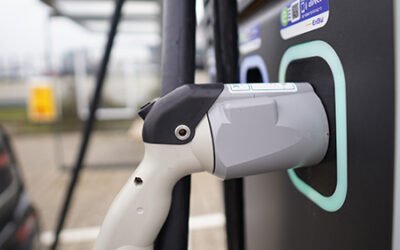• One of the main supporting technologies required to support the wide-scale adoption of electric vehicles is the EV charging infrastructure.
• The European Green Deal and Biden’s Bipartisan infrastructure Bill are just some examples of the fundings that we saw made a significant impact on the country or region’s charging infrastructure.
• With the recent region-wise and country-wise announcement of dates for the banning of ICE vehicles and the provision of investments into deploy charging infrastructure, we can expect a greener future in the coming decades.
With the road transportation industry moving forward with adopting greener modes of transportation, electric vehicles (EVs) have emerged as one of the most dominant technologies on the horizon. One of the main supporting technologies required to support the wide-scale adoption of electric vehicles is the EV charging infrastructure.
Over the years, there have been manifold increases in the number of EV chargers on a global level. However, in order to unlock exponential growth for the EV charging infrastructure, key factors affecting its growth need to be identified. This must go hand-in-hand with working on limitations that are hindering the deployment of chargers. This article will walk through those reasons in detail.
Factors Contributing to the Increase in EV Charging Infrastructure
Investments and Grants
Investments and grants have played a pivotal role in driving the EV and EV charger market forward. The European Green Deal and Biden’s Bipartisan infrastructure Bill are just some examples of the fundings that we saw made a significant impact on the country or region’s charging infrastructure.
The European Green deal consisted of a set of regulations and directives for the EU member states to follow, directing them to install fast charging stations every 60km along the TEN-T network, in addition to making building infrastructure ready for the deployment of chargers at residential and commercial buildings.
The U.S. President Biden’s recent Bipartisan Infrastructure Bill has allocated $7.5 Billion for the EV charging infrastructure, of which $5 Billion have been allocated for the installation of high-power charging hubs across highway corridors whilst $2.5 Billion have been reserved for the funding of private chargers across the U.S.. Thus, the bill is expected to play a crucial role in enabling a faster roll-out of charging infrastructure within the country
One of the best ways of estimating the impact of fundings and investments is to look at the similar examples in the past and gauge their impact on the industry. In November 2020, the KfW bank in Germany announced a funding of 900 EUR (1 EUR= 0.98 US$) for residential chargers. The funding amount was almost equal to the price of the residential charger. The initial amount put in the fund, amounting to approximately $500 Million, was exhausted by end of June, so around $300 Million were added to the fund and this was also exhausted by September of 2021. Germany’s residential charging infrastructure grew exponentially as a direct result of these funds. The funds have now been diverted to workplace charging infrastructure and the success of the venture has led to similar funding being introduced in Austria, as well.

Figure 1: Global EVSE Policies and Incentives
Regulations
One of the other key factors affecting the growth of EVs is the placement of strong regulations in various countries. It is quite evident that countries who have set their clear carbon-emission and road transportation electrification targets are the ones which are progressing at a good pace. Countries that have not exhibited a clear outline planning out the decarbonization have been shown to not to be growing at the expected rate.
Looking Ahead
Moving forward we can expect more and more economies to be making strides in electrifying their road transport. In this regard, to make real progress, targets and fundings are absolutely crucial. With the recent region-wise and country-wise announcement of dates for the banning of ICE vehicles and the provision of investments into deploy charging infrastructure, we can expect a greener future in the coming decades.
EV Charging Infrastructure Service Overview
The research presented in this article is from PTR's EV Charging Infrastructure market research. For information about this service please submit a request shown below.
Contact Sales:
Europe
+49-89-12250950
Americas
+1 408-604-0522
Japan
+81-80-7808-1378
GCC/Rest of APAC
+971-58-1602441
More about our:
EV Charging Infrastructure Market Research
Recent Insights
Sustainability Across Sectors: Highlights from GreenTech Festival 2024
Recently, I had the privilege to attend and present at the Greentech Festival, an excellent event in the realm of sustainability. This influential...
An Evolving Market: Rise of Electric Vehicles in Europe (2023)
This infographic examines the electric vehicle (EV) market in the European region. It highlights the current and forecasted EV market size of each...
Evolution of V2G: CPOs-Automotive OEMs-Utilities at the center of transition
Evolution of V2G: CPOs-Automotive OEMs-Utilities at the center of transition [ba_advanced_divider active_element="text" title="About the Whitepaper"...


